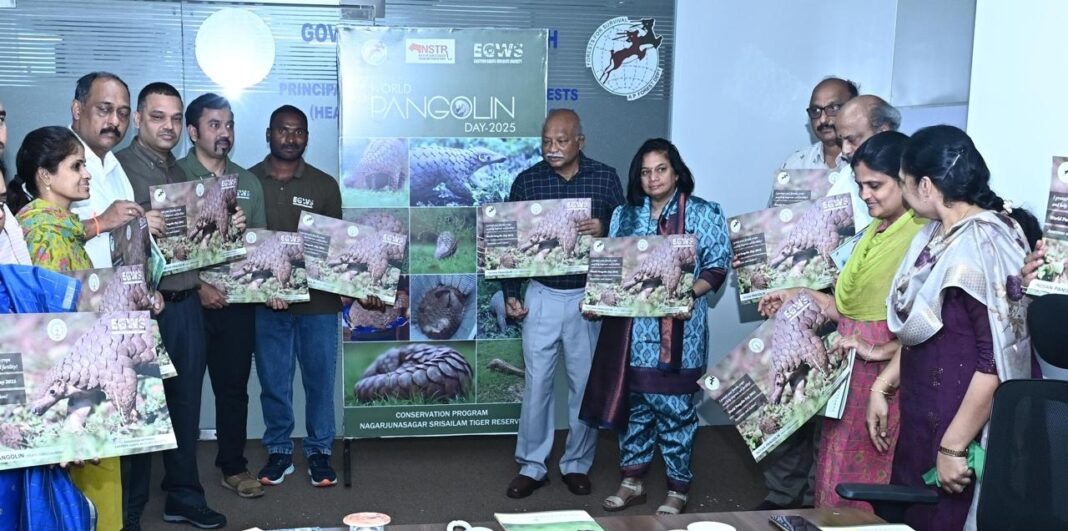In a laudable step towards wildlife conservation, the Andhra Pradesh Forest Department, in collaboration with the Eastern Ghats Wildlife Society, has unveiled a project report on Indian Pangolin conservation in the Nagarjunasagar Srisailam Tiger Reserve (NSTR). The report was released on World Pangolin Day at Aranya Bhavan, Mangalagiri, Guntur, highlighting ongoing efforts to protect this rare and endangered species. The event was attended by senior forest officials, including Principal Chief Conservator of Forests (Wildlife) and Chief Wildlife Warden A.K. Naik, Additional PCCF (Wildlife) Dr Shanti Priya Pandey, and Rahul Pandey. As part of the awareness campaign, a poster on the Indian Pangolin (Manis crassicaudata) was also launched.
The conservation project focuses on studying and safeguarding pangolins in NSTR, addressing the growing threats of habitat destruction and illegal poaching. Deputy Chief Minister Pawan Kalyan, reminiscing about his childhood encounter with a pangolin, underscored the alarming vulnerability of the species due to illegal hunting for its scales and meat. He emphasised the importance of collaborative efforts between the Forest Department and conservation organisations in ensuring its survival.
Chief Wildlife Warden A.K. Naik pointed out that the vast expanse of NSTR, coupled with the use of camera traps and the involvement of local communities as wildlife informants, would help curb poaching. He also stressed the need for habitat conservation, as deforestation, human settlements, and road expansion near the reserve pose significant threats to pangolin burrows.
Additional PCCF (Wildlife) Dr Shanti Priya Pandey highlighted the success of recent pangolin seizures, attributing them to the improved investigative capabilities of forest officials. She noted that continuous surveillance and awareness programmes are essential to curbing illegal trade.
The Indian Pangolin, protected under Schedule-I of the Indian Wildlife (Protection) Act, 1972, and listed in Appendix-I of CITES, plays a crucial ecological role in controlling insect populations. However, despite its significance, the species remains highly vulnerable to poaching, driven by the demand for its scales in traditional medicine, despite a lack of scientific evidence supporting its medicinal properties.
With the renewed focus on conservation, Andhra Pradesh’s forest authorities are determined to strengthen protection measures, involving local communities and deploying advanced technology to safeguard one of the country’s most elusive and endangered mammals.
AP steps up pangolin conservation efforts




